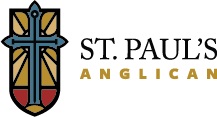Baptism
What is Baptism?
Article 25 of the 39 articles affirms:
“Baptism is not only a sign of profession, and mark of difference, whereby Christian men (and women) are discerned from others that are not Christians, but it is also a sign of Regeneration or New birth, whereby, as by an instrument, they that receive Baptism rightly are grafted into the Church; the promises of forgiveness of sin, and of our adoption to be the sons of God by the Holy Ghost, are visibly signed and sealed; Faith is confirmed, and Grace increased by virtue of prayer unto God.”
This article affirms that Baptism is a sign of our Christian faith and represents our new birth as we die
It is assumed in the Bible that all adult Christians will seek Baptism after they come to saving faith in Jesus to signify their faith publicly and later be Confirmed (for youth and adult believers).
What is Confirmation?
Anglicanism requires a public and personal profession of the Faith from every adult believer in Jesus Christ. Confirmation by a bishop is its liturgical expression. Confirmation is evident in Scripture: the Apostles prayed for and laid their hands on those who had already been baptized (2 Timothy 1:6-7; Acts 8:14-17; 19:6).
In Confirmation, God, through the bishop’s prayer for the daily increase in the Holy Spirit, strengthens the believer for Christian life in the service of Christ and His kingdom. Grace is God’s gift, and we pray that he will pour out his Holy Spirit on those who have already been made his children by adoption and grace in Baptism.
For those wishing to join St. Paul’s, Confirmation is required. Already confirmed Christians who wish to join should “reaffirm” the pledges made to Christ and his Church with prayer and the laying on of hands by a bishop or be “received” at the next bishop’s visitation.
Why Baptize Children?
Our Prayer Book liturgy for Baptism states:
“Today, on behalf of this child, you shall make vows to renounce the devil and all his works, to trust God wholeheartedly, and to serve him faithfully. It is your task to see that this child is taught, as soon as he is able to learn, the meaning of all these vows, and of the Faith that you will profess as revealed in the Holy Scriptures. He must come to put his trust in Jesus, and learn the Creeds, the Lord’s Prayer, the Ten Commandments, and all other things which a Christian ought to know, believe, and do for the welfare of his soul. When he has embraced all these, having become a disciple of Jesus, he is to come to the Bishop to be confirmed, that he may claim the Faith for his own and be further strengthened by the Holy Spirit to serve Christ and his Kingdom.”
Baptism for a child is the beginning of a faith journey within a community of prayer, the sacraments, Gospel teaching, ministry, communal fellowship and corporate worship.
For Christians, baptizing children is a sign of the covenant journey they are beginning with God just like circumcision was a covenant sign for Jewish children in the Old Testament. God repeatedly told them, “I will be your God, and you shall be my people (Ex. 6:7; Jer. 30:22).”
For more information on the theology of baptizing infants, please refer to the work of J.I. Packer, the great Anglican theologian. It can be found here.
Parents and Godparents
Parents and Godparents are called Sponsors. It is expected that the Sponsors will be baptized, active, believers who will take seriously their vows to help nurture the child in his or her faith development alongside the parents.
Scheduling a Baptism
Baptisms are public events, so we celebrate them on Sunday within our community of believers. We do not perform private baptisms (unless there are extreme pastoral circumstances involved) and should normally be celebrated within the faith community that the newly baptized will be attending.
Typically, we celebrate baptisms on the traditional feast days of Easter, Pentecost, All Saints, and the Baptism of Our Lord. While pouring water over the head is the typical method of Baptism for Anglicans, full immersion is also available upon request.
For more information or to schedule a baptism, please contact the church office. The Parish Administrator will schedule an appointment with you to meet with a priest to begin the process of baptismal preparation.
